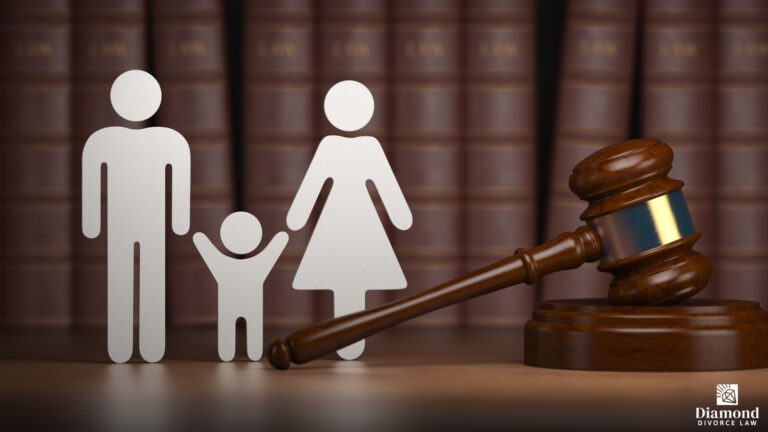How to Know if You Are Entitled to Alimony in Illinois
A question that we often receive is, “Am I eligible to receive alimony?” This is understandable, but it’s not really a cut and dry question. Eligibility for alimony, called “maintenance” in Illinois, is based on a number of factors.
Before digging into those factors, we would like to dispel some common myths surrounding maintenance.
Myth #1: Maintenance Is Always Awarded
It’s often believed that alimony will be automatically awarded, but this just isn’t true in Illinois. Alimony can be granted to either party, but it is dependent upon a number of variables.
Bottom line, maintenance will only be awarded when the judge decides it is appropriate.
Myth #2: Maintenance Is Gender-Specific
Another commonly held belief is that alimony will always be granted to the wife; while there used to be some truth to this (because many wives didn’t make as much money as their husbands), it is not the case today.
If maintenance (alimony) is awarded, it will be awarded to the lower-earning spouse, even if that happens to be the husband.
Myth #3: Maintenance Lasts Forever
While Indefinite Maintenance can be awarded under some circumstances, it is not the most common type of maintenance awarded.
Often, maintenance is only deemed necessary for a specific period. This might be the duration of the divorce proceedings, or it might be a specific number of months or years. There are also situations that could cause maintenance payments to be stopped.
Each of these situations will be handled by the court on a case-by-case basis.
Myth #4: Higher Maintenance Will Be Awarded to the Wronged Spouse
It is commonly thought that in the case of infidelity or abuse, higher maintenance payments will be awarded to the spouse who was wronged. However, this isn’t true. Because Illinois is a no-fault state, these actions don’t determine eligibility or payment amount.
Eligibility for Maintenance in Illinois
With those myths cleared up, you may be wondering which factors play into eligibility for being awarded maintenance in an Illinois divorce case? There are several, but some of the main factors include:
- The income of both parties.
This includes your main salary, of course, but it also includes things like disability, retirement, and any future earnings. If one spouse earns significantly more than the other, this can be taken into consideration when determining whether maintenance will be required. - The needs of both parties.
When considering this, the court will take into consideration things such as whether the lower-earning party will need additional training to be ready to enter or re-enter the workplace, if support given to the other party will need to be recuperated, and the standard of living during the marriage. - The duration of the marriage.
If you have only been married for a few years, maintenance may or may not be awarded; if, on the other hand, you have been married for several years, it is often more likely that maintenance will come into play. - Voluntary unemployment during the marriage.
If one spouse agreed not to work (perhaps to stay home and raise the children) or delayed professional development in order to allow the other spouse to take advantage of opportunities, the judge will take this into consideration when deciding whether and how much maintenance will be awarded. - If parental responsibilities will affect employment.
If one spouse will continue to be the primary caretaker of the children – and if this will interfere with their ability to gain employment – the judge will consider this when determining maintenance. - Several other factors.
The court will also take into account things like health, age, station, occupation, vocational skills, employability, and other factors.
There are specific formulas involved, but they are not easy to work with – and as stated above, they don’t necessarily apply only to current salary. This is why we strongly recommend hiring an experienced divorce attorney who can protect your rights and advise you every step of the way.
Can the Judge Go Outside the Guidelines to Award Maintenance?
Illinois Judges are required to follow the maintenance guidelines if the Court finds maintenance is appropriate. However, the Judge may award non-guideline maintenance if they specifically find a deviation is appropriate.
Figuring out if a judge will find a deviation appropriate can be complicated. If you want to deviate from the guidelines, a local family law attorney should be able to help you figure out if you have a high likelihood of getting the judge to find the deviation appropriate.
DISCLAIMER: Any information contained herein is solely for informational purposes and is only applicable in the state of Illinois. While it is important that you educate yourself, nothing herein should be construed as legal advice or create an attorney-client relationship. For specific questions, we urge you to contact a local attorney for advice pertaining to your specific legal needs.
More Posts We Think You’ll Like

How is Alimony (or Spousal Maintenance) Calculated in Illinois?
Alimony, or “maintenance” as it is known in Illinois, can be a complicated subject. Many people wonder if they will…

Top 5 Questions and Answers about Illinois Alimony
Alimony, called “maintenance” in Illinois, can come in several different forms to fit a number of situations. Many of our…

Child Support and Maintenance / Alimony in Illinois Ain’t What It Used to Be
If you are considering divorce in Illinois, it’s likely that you want to have some idea of how much child support or maintenance (formerly known…

